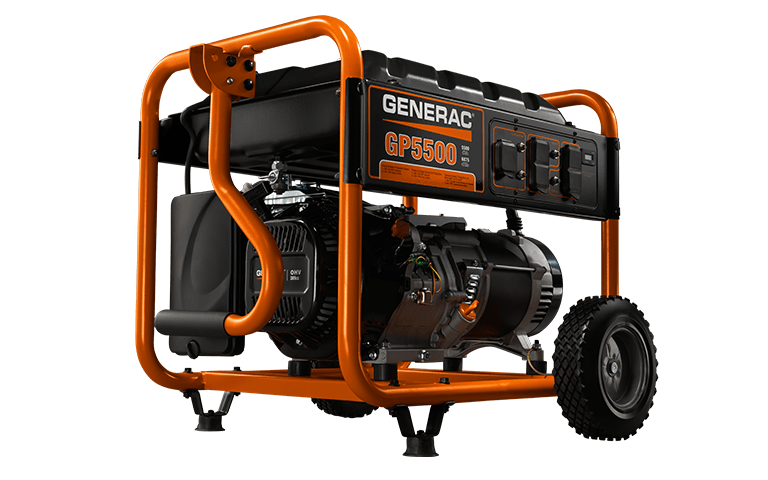As hurricane season begins, thoughts turn to protecting themselves from the storm. There are many generators on the market to help power your residence through a hurricane. Choosing one that best suits your needs can be intimidating, so let’s run through the basics of the two main generator types, which you should choose and how to use them to power your home.

Before looking for a generator, know how many watts you need your generator to supply. Walk around your house and make a note of the power requirements for any appliance you want to run during a blackout.
- Add up all the wattages of your appliances
- Add 6 watts per phone and charger
- Add 50 watts if you plan to charge a laptop
- Multiply the sum by 1.5, since appliances require extra power to turn on.
The final number will determine the size generator you need.
Portable Home Generator
These are small, gas-powered generators on wheels that need to be started manually before you plug in your home’s appliances. They’re simple to hook up, and are by far the friendliest on your wallet. All you need is the generator, some gas, and extension cords to have this system run well. Be careful to keep the generator at least 10 feet away from your house at all times, since carbon monoxide is produced by the generator and is poisonous when inhaled.
Portable generators are great for keeping a few major appliances running; however, with most you’re limited by the amount of extension cords you can plug in and therefore the wattage.
Portable generators are relatively inexpensive as far as generators go, costing around $500 – $1,500 each. Portable generators can handle between 3,250 watts and 10,000 watts, depending on the size and your needs. Consider the gas tank on each model as well; some with smaller tanks need to be refilled every few hours, while larger tanks can go nearly 12 hours before needing a refill.
Standby Generators
You’re not always aware of when the power goes out, meaning that if you’re asleep or out of the house, your food could be spoiling before you even know what happened. With a standby generator, you can avoid this issue. If you find your electricity grid loses power often, this is the best option for you.
Standby generators use propane or natural gas for power and will automatically turn on should your house lose power. They’re powerful enough to power most of your house–at the very least, they will keep your HVAC and kitchen running at full power. Many can be used to effectively power the whole house, and they’re much quieter than portable generators when doing so. Since they’re connected to your home’s gas line, you don’t need to worry about refueling.
These are much more expensive than portable generators because of their higher watt capacities and the need to install them into your home’s electrical system. Even the cheapest models still cost around $5,000, since you need an electrician to install them. Standby generators will power between 7,000 and 30,000 watts, depending on the size.
You can buy a generator from many places, but purchasing from a local certified retailer who can also install and service the generator at your home is a smart move. Promise Electric sells and services Generac generators, and we are happy to come out to your home to discuss which are best for your needs. But hurry! Generators sell out quickly this time of the year – call before a storm and be ready to protect your home and family.


